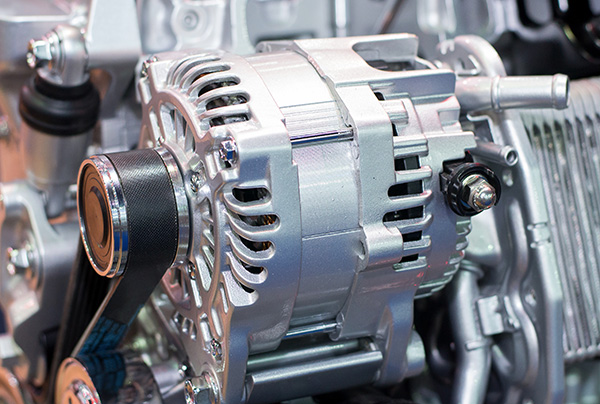
Your car’s alternator is one of those components you rarely think about—until something goes wrong. It plays a crucial role in keeping your battery charged and powering essential electrical systems, from your headlights to the radio. But when the alternator starts failing, it doesn’t always give obvious warning signs right away. Many drivers don’t realize there’s an issue until their car suddenly won’t start, or worse, shuts down while driving.
Understanding how your alternator works, recognizing early warning signs, and knowing how to prevent alternator failure can save you from the frustration of getting stranded.
What Does the Alternator Do
The alternator is responsible for generating electrical power and charging the battery while the engine is running. It converts mechanical energy from the engine into electricity, which is then distributed to the car’s electrical components. Without a functioning alternator, the battery will drain quickly, and your vehicle won’t have the power it needs to operate.
A failing alternator doesn’t just leave you with a dead battery—it can affect your lights, power steering, dashboard electronics, and even your ability to restart the car after shutting it off.
Signs of a Failing Alternator
Alternators don’t typically fail overnight. Instead, they tend to show gradual warning signs before completely giving out. Catching these symptoms early can prevent a sudden breakdown.
1. Dimming or Flickering Lights
Your headlights, dashboard lights, or interior lights may start to dim, flicker, or change brightness unexpectedly. This happens because the alternator isn’t supplying a steady electrical current, leading to fluctuating power levels.
2. Strange Noises Under the Hood
A failing alternator can sometimes make a grinding, whining, or squealing noise. These sounds may come from a worn-out bearing inside the alternator or a loose serpentine belt struggling to spin the alternator pulley.
3. Battery Warning Light on the Dashboard
Many drivers assume the battery light on the dashboard means they need a new battery, but it can also indicate an alternator issue. This light usually comes on when the alternator isn’t providing enough charge to the battery, causing voltage fluctuations.
4. Electrical Malfunctions
Since the alternator powers everything electrical in your vehicle, a failing alternator can cause problems like:
- Power windows or locks operating slower than usual
- Infotainment system resetting or turning off
- Dashboard gauges fluctuating or malfunctioning
5. Difficulty Starting the Car or Frequent Stalling
If your car is slow to start, hesitates, or completely stalls, the alternator may not be providing enough power to keep the engine running. In severe cases, the engine may stall while driving, which can be dangerous.
How a Bad Alternator Can Leave You Stranded
When an alternator completely fails, the battery takes over all electrical functions. But since the battery alone isn’t designed to run the car for long, it will quickly drain, leaving you with a dead vehicle that won’t restart.
If you’re driving when the alternator gives out, you may first notice dimming lights, weak acceleration, or dashboard warning lights before the car loses power entirely. Without alternator function, the battery can no longer keep essential systems running, including power steering and braking assistance, making it dangerous to continue driving.
Once the battery is fully drained, the engine will shut off, and you’ll be stuck wherever you are—whether it’s in a parking lot, at a stoplight, or on the highway.
How to Prevent Alternator Failure
Avoiding alternator trouble comes down to regular maintenance and paying attention to warning signs before things get worse.
- Get your charging system tested regularly, especially if your car is over five years old or has high mileage.
- Check the alternator belt for cracks, fraying, or looseness, as a worn-out belt can prevent the alternator from working properly.
- Monitor your battery health, as a weak battery can force the alternator to work harder than necessary, leading to premature failure.
- Listen for unusual noises when starting the car or accelerating—whining or grinding sounds near the alternator could mean it’s wearing out.
If you notice any warning signs, it’s best to have your alternator checked right away. Replacing a weak alternator before it completely fails can save you the stress of getting stranded and needing an emergency tow.
Don’t get stranded with a dead alternator! Let H B Auto & AC in Huntington Beach, CA, inspect and replace your alternator before it fails. Call us today to schedule your appointment!